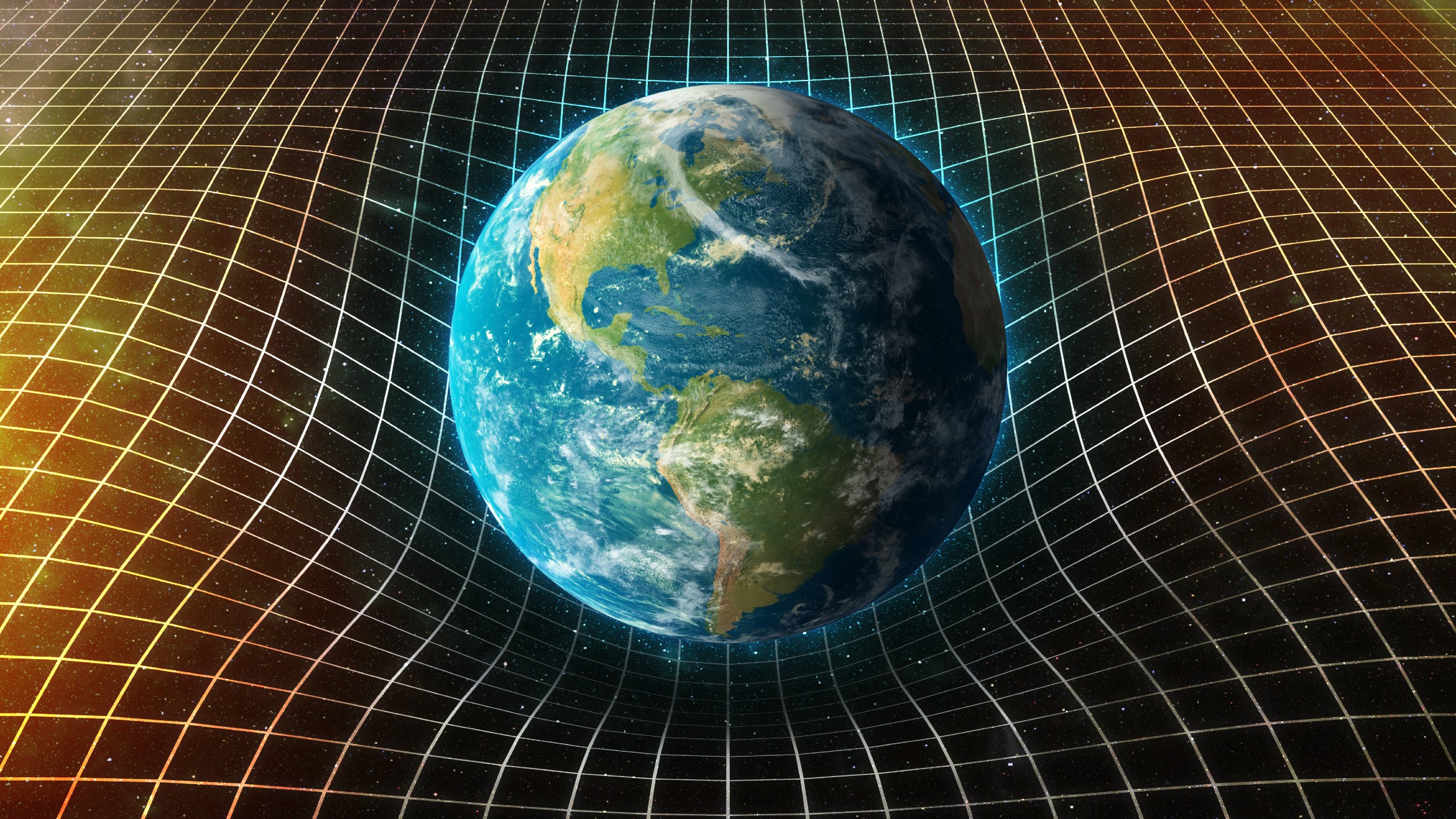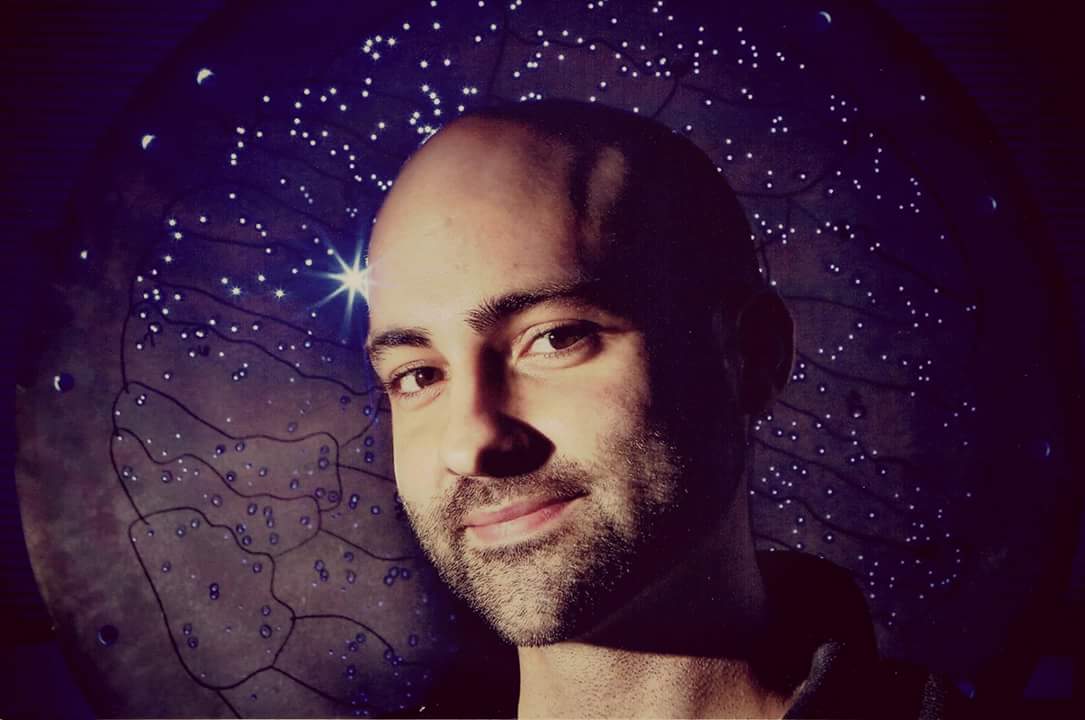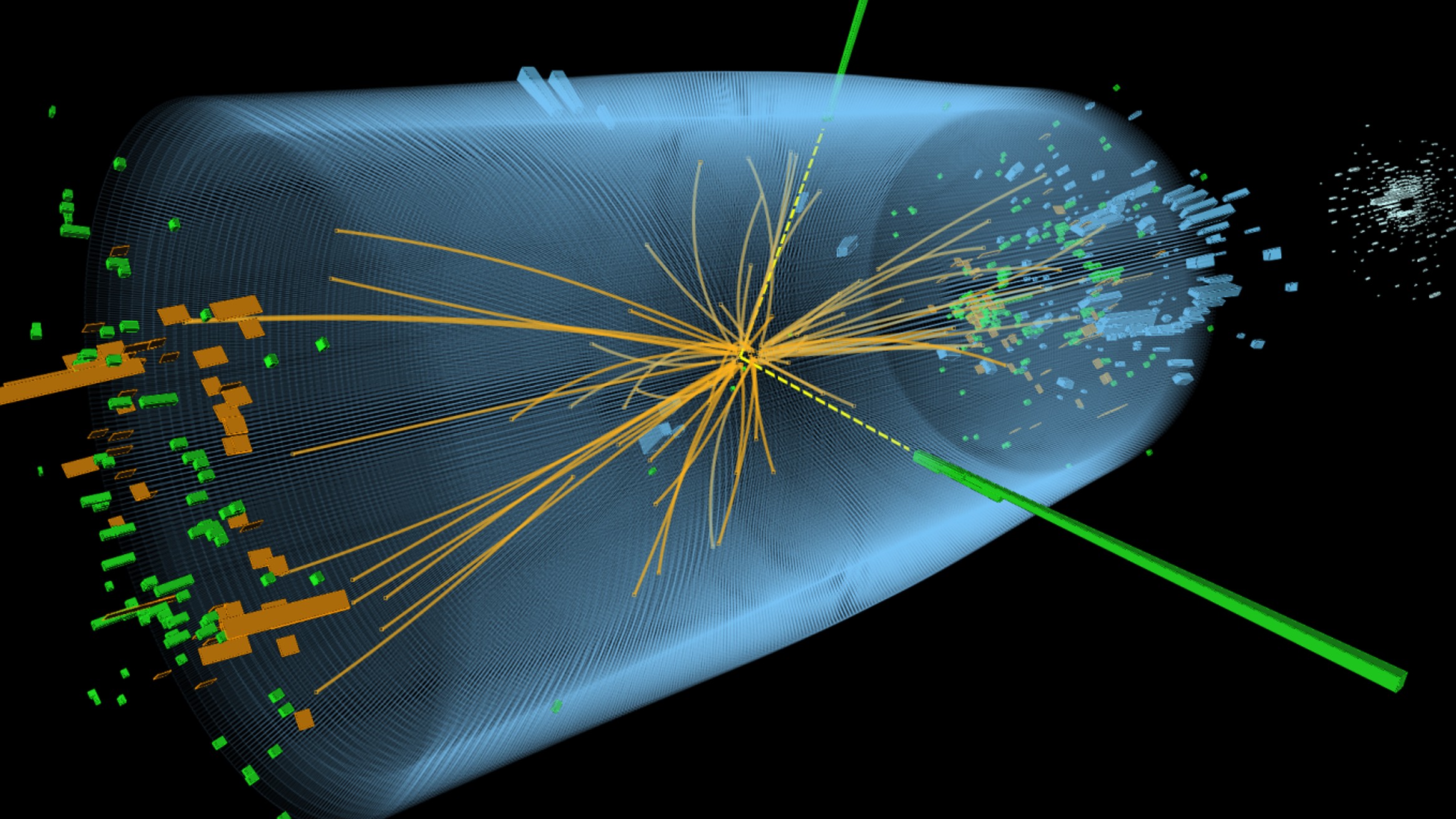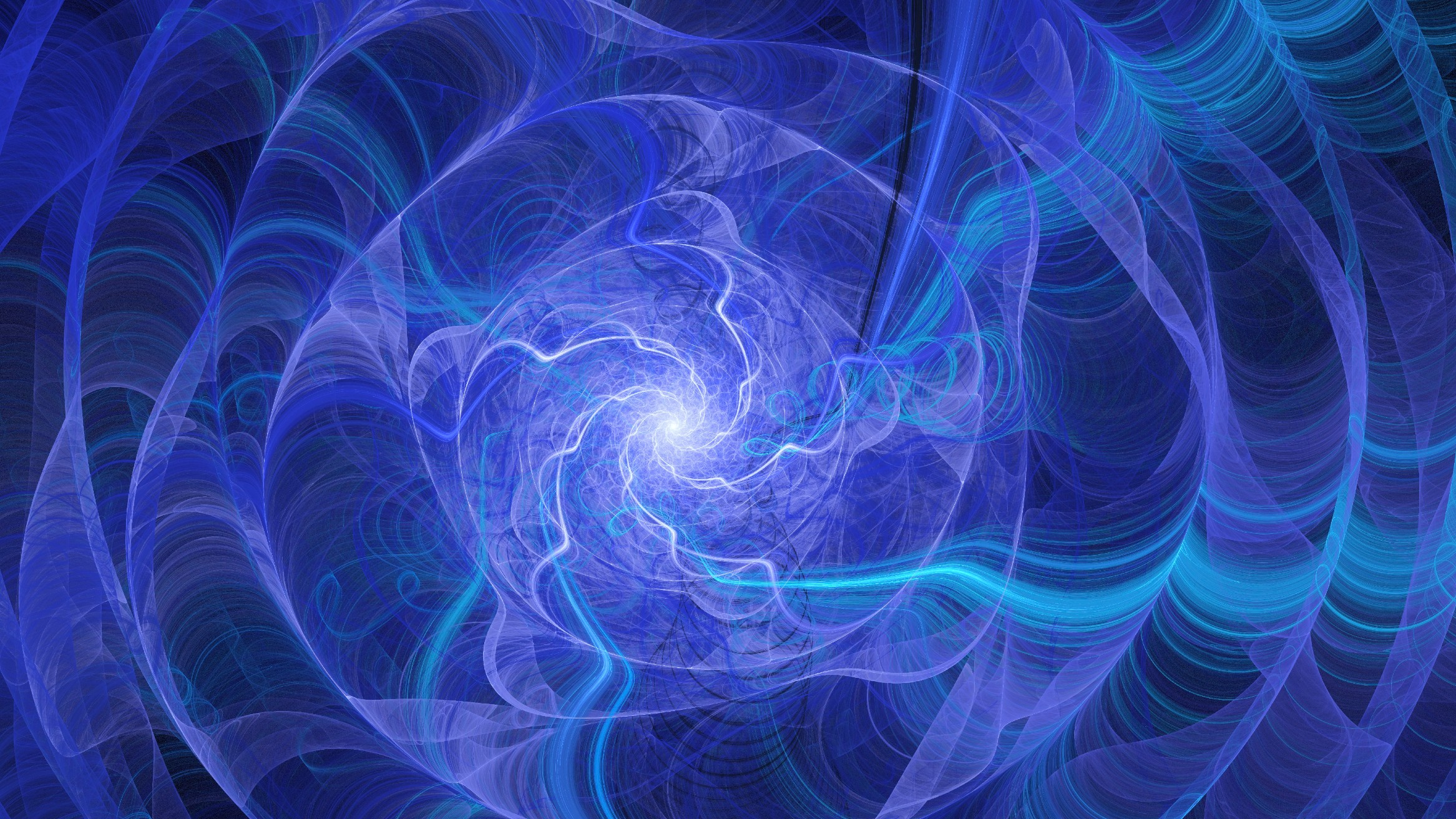Why is gravity so weak? The answer may lie in the very nature of space-time
The solution as to why gravity is so weak may come from taking a closer look at the Higgs boson.

Why is gravity so weak compared to the other four fundamental forces?
Even if it were a billion times stronger, it would still be the weakest force — by a factor of a billion billion. The strange feebleness of gravity sticks out, almost demanding an answer.
Strangely, the solution to gravity's weakness may not lie in gravity itself but in the mechanics of the Higgs boson and the very nature of space-time.
The hierarchy problem
Lift a piece of paper. Congratulations, you have successfully counteracted the combined gravitational might of the entire planet.
It didn't take a lot of effort because gravity is, by far, the weakest of the four fundamental forces of nature. By one measure, gravity is a thousand billion billion times weaker than the strong nuclear force, the strongest of all the forces.
Related: Artificial gravity: Definition, future tech and research
Here's another way to imagine the true scale of the weakness of gravity. There's a limit to the smallest possible black hole you can build, and it's called the Planck mass. You can calculate it by taking the square root of the reduced Planck constant times the speed of light divided by Newton's G. That mass is around 10^-8 kilograms. If gravity were strong — if Newton's G were larger — then you could fashion even smaller, lighter black holes.
Breaking space news, the latest updates on rocket launches, skywatching events and more!
By comparison, the W and Z bosons — the force carriers of the weak nuclear force — are about 10 quadrillion times lighter than the Planck mass. So the weak nuclear force, the next most powerful force after gravity, is quadrillions of times stronger than gravity.
This "hierarchy problem" seems odd to most physicists. Sure, it could just be the way the universe is, with no need for an explanation, but that isn't very satisfying. Instead, it seems like an opportunity to dig deeper into the physics of the fundamental forces and see if there's anything new we can learn.
What the Higgs is going on?
Let's leave aside electromagnetism and the strong nuclear force and just compare gravity to its "nearest" rival, the weak nuclear force. Perhaps if we can answer why the weak nuclear force is so impressively stronger than gravity, we can understand the whole picture.
We have no idea why gravity has the strength it does. There's nothing that appears in any theory of physics to explain its strength. But there is something that appears to explain the properties of the weak nuclear force, and that's the Higgs boson.
The Higgs boson is the field that soaks all of space-time and forces many other particles, like electrons, to interact with it. That interaction causes those electrons to acquire a mass. The more something interacts with the Higgs, the bigger mass it has.
Among the many particles that interact with the Higgs boson are the W and Z bosons, and it's through that interaction that they acquire mass. And it's the mass of the W and Z bosons that sets the properties of the weak nuclear force, because it's those very particles that are doing the work.
And what sets the mass of all the particles that interact with the Higgs? Why, none other than the mass of the Higgs itself. If it had a different mass, then all other particles, including the W and Z bosons, would change.
Now's a good time to point out that the mass of the Higgs is extremely odd. It's big — about 250 GeV, which is big as particles go — but not huge. It's also not tiny. In fact, a naïve quantum mechanical understanding of how the Higgs works predicts that all the interactions it constantly participates in — which is a lot — would either perfectly cancel each other out, sending its mass to zero, or reinforce each other, ballooning its mass to somewhere near infinity.
Something is causing the Higgs boson to be precisely fine-tuned to within an "acceptable" range that keeps everything sane. But that Higgs boson limits the W and Z bosons to their tiny values, thus allowing the weak nuclear force to be much, much stronger than gravity.
In other words, gravity is the weakest force in the universe not because there's something wrong with gravity, but because the weak force is 'cheating.'
A little twist to space-time
There is no accepted solution to the unnatural state of the Higgs mass, and hence no accepted solution to the hierarchy problem and the weird weakness of gravity.
But all this discussion assumes that we're calculating everything correctly — the mass of the Higgs, the Planck mass, and so on. Maybe we're missing something fundamental about the universe.
Among the many potential solutions, some ideas call into question our understanding of the very fabric of space-time. String theory has already primed the pump for such ideas, requiring the existence of new, compact spatial dimensions to get the math of the theory to come out right.
But in string theory, those extra dimensions are super-duper small, curled up into tight little shapes no bigger than the Planck length.
It's possible, though, that some of those extra dimensions are a bit bigger. These theories are generally called "large extra dimensions," but those extra dimensions aren't as large as you might think — just a millimeter or so.
In these theories, the other three forces of nature are restricted to our normal three-dimensional universe, which is sometimes called a "brane." However, gravity gets to extend its reach through all the dimensions, called the "bulk." In this view, gravity is just as strong — if not stronger! — than the other forces, but it's forced to spread itself out over more dimensions than anybody else. So it just appears weaker to our three-dimensional experiments.
We've tested gravity to incredible levels of precision, but not necessarily at such small scales. If our universe had extra "large" spatial dimensions, then we would start to see funky stuff happening at distances of less than a millimeter.
For example, we might see gravity acting stronger than expected at small distances, because there hasn't been a chance for it to "leak out" to the extra dimensions. Or we might start to fashion tiny black holes in our particle colliders, because at those tiny scales, it would be easier than we thought to build a black hole.
So far, no experiment to date has found any evidence for extra dimensions. And gravity remains frustratingly weak.
Learn more by listening to the "Ask a Spaceman" podcast, available on iTunes and askaspaceman.com. Ask your own question on Twitter using #AskASpaceman or by following Paul @PaulMattSutter and facebook.com/PaulMattSutter.
Additional resources
For more information about gravity check out "The Ascent of Gravity: The Quest to Understand the Force that Explains Everything" by Marcus Chown and "Reality Is Not What It Seems: The Journey to Quantum Gravity" by Carlo Rovelli.
Bibliography
- Kapil Chandra, "Why Gravity a Weak Force of Nature", Journal of High Energy Physics, Gravitation and Cosmology, Volume 6, July 2020.
- Daniel Harlow, et al, "The Weak Gravity Conjecture: A Review", High Energy Physics – Theory, January 2022.
- Shahar Hod, "A proof of the weak gravity conjecture", International Journal of Modern Physics D, Volume 26, June 2017.
- Cern, "The Higgs Boson", accessed June 2022.
- Cern, "The Z boson", accessed June 2022.
- Cern, "W boson: Sunshine and stardust", accessed June 2022.
- National Space Society, "What is Gravity", accessed June 2022.

Paul M. Sutter is a cosmologist at Johns Hopkins University, host of Ask a Spaceman, and author of How to Die in Space.


